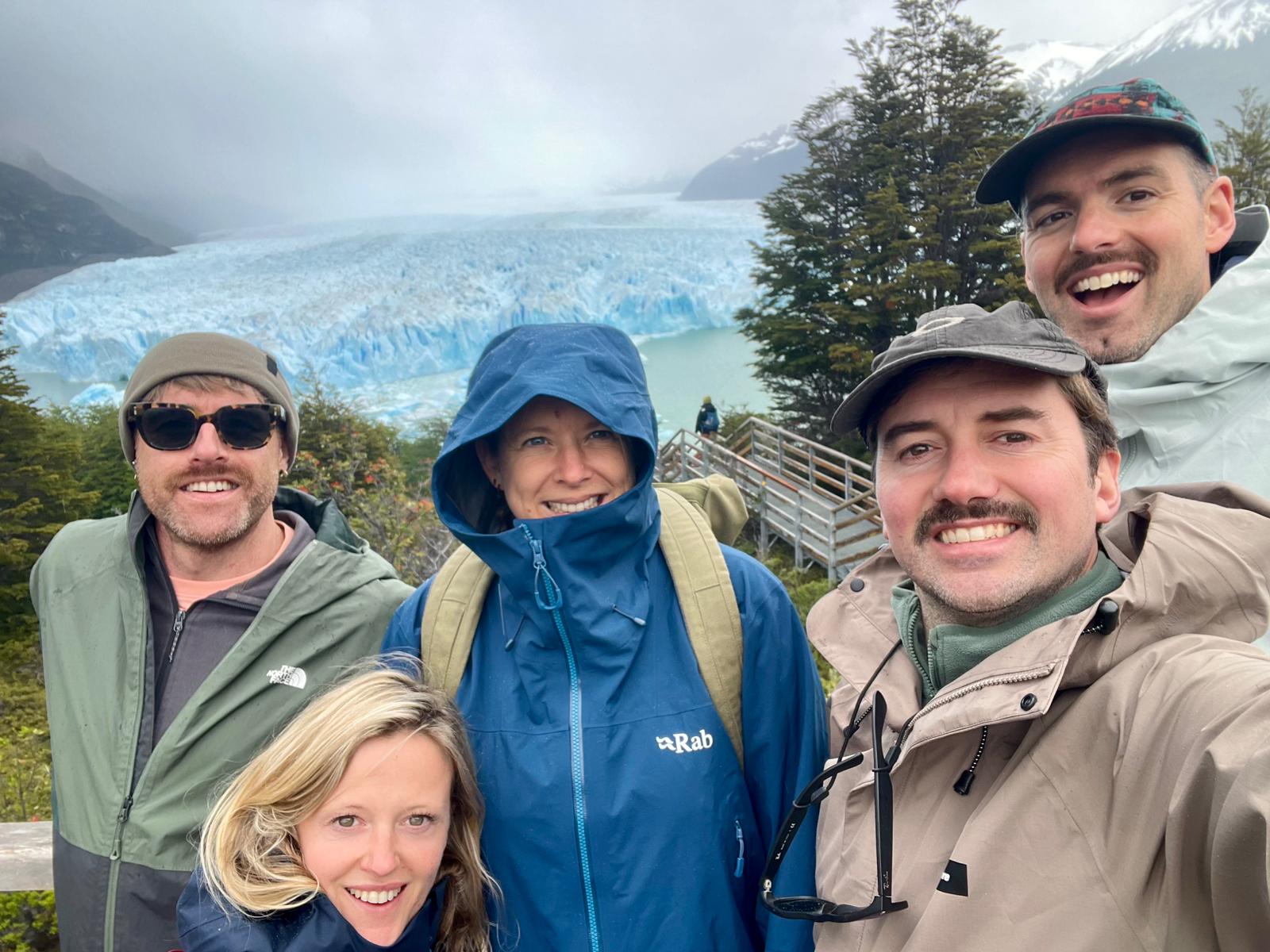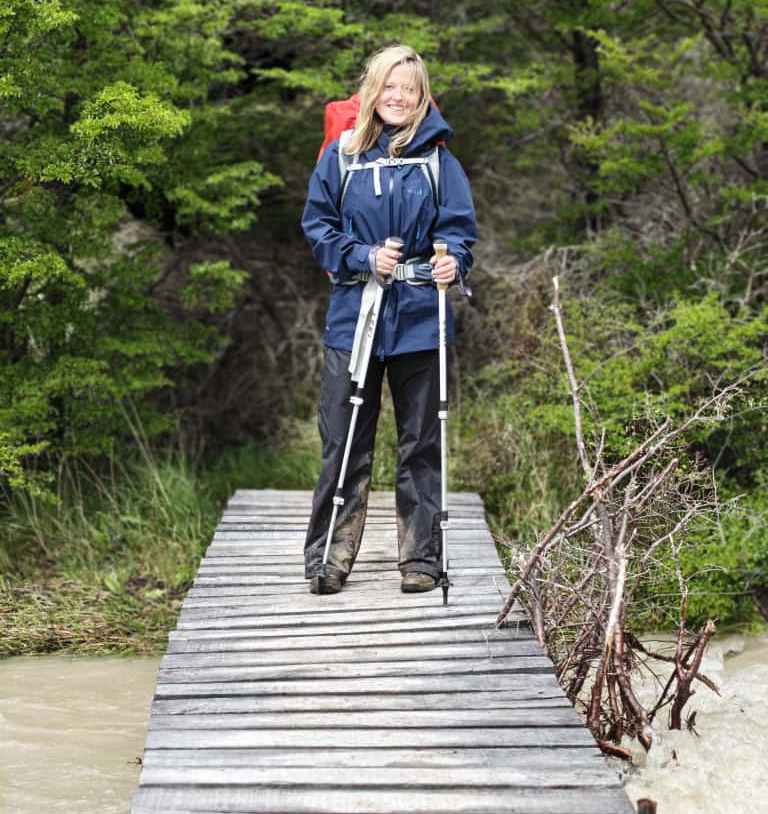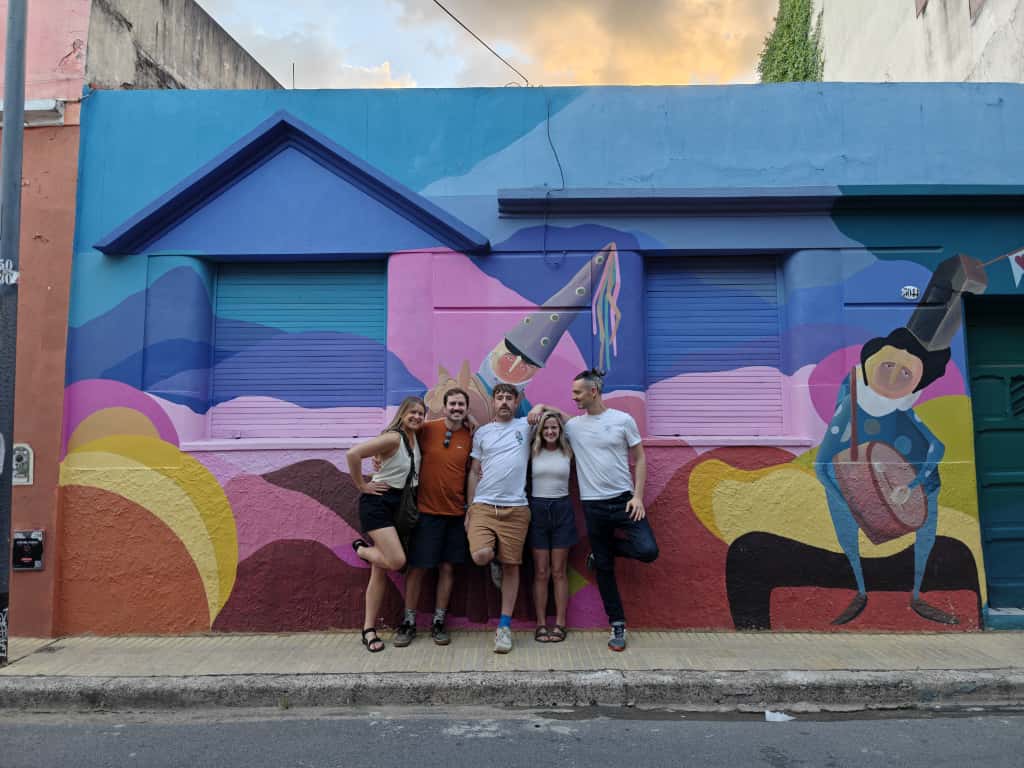A survivor of the blizzard which killed a British woman and four others in Chilean Patagonia has described the “suffocating” snowstorm that turned a steep rocky mountainside into “sheet ice” with near-zero visibility.
Christian Aldridge, from Newquay, Cornwall, told The Times from his hospital bed in Chile: “I think we all thought we were not getting out of this. It felt like we were in a nightmare.”
He said that park rangers should have assessed the weather to decide whether to close the treacherous route they were taking, but were not working on the day of the incident because of mandatory voting in Chile’s presidential election.
Mauricio Ruiz, regional director of Conaf, Chile’s national forestry corporation, which employs the park’s rangers, told local news media “the day was a bad coincidence because it coincided with the vote”. He said the violent blizzard was “unpredictable, we had no way of knowing” and suggested radical weather variations were becoming more common due to climate change.
Victoria Bond, 40, from Truro, died in the Torres del Paine national park on Monday along with Nadine Lichey and Andreas Von Pein from Germany and Cristina Calvillo Tovar and Julian Garcia Pimentel from Mexico.
Bond, a PR manager for the Visit Isles of Scilly tourism organisation, had recently begun a new romantic relationship before heading off on a three-week holiday with friends in South America.
“She had been searching for someone for a long time and they were perfect for each other. It’s so sad,” Aldridge said.
Bond and Aldridge, 41, a TV director and producer, were hoping to complete the O Circuit hiking trail, an unguided 85-mile trek that takes eight days, with three other British friends. Also on the trip was Hayley Newnham, 41, a PR agency owner, Matt Smith, 39, a sports coach developer, and Tom Player, 39, a composer. They were all “semi-experienced hikers who have done Himalayan treks up to 5,500m” who had met through the same co-working space in Newquay.

The group of friends in Chile
On November 17, the fourth day of their hike, the five were part of a larger group of about 30 as they passed through the arduous John Gardner Pass.
It was while at the highest point of the trek, at 1,200m (3,900ft), that a blizzard swept through, turning the soft snow on the jagged mountainside to ice. Reuters later reported that the area was struck by wind speeds surpassing 193km/h (120mph), equivalent to a Category 3 hurricane.
“I find it very difficult to convey how horrific it was,” Aldridge said. “It was suffocating, wind so powerful that you had to sit down and curl into a ball and turn your back to it so it didn’t knock you down the mountain.
“I couldn’t breathe with the ice and snow blowing so much in my face and then attempting to go up a very steep climb. It was just too many things at once.”
They were two miles from their base camp and the large group of trekkers decided the safest thing to do was continue climbing for another mile or so in the hope of reaching a refuge. They would later discover it had been shut because park rangers had left to cast their mandatory votes in a presidential election the day before.
With conditions worsening, the group decided to abandon the trek for the refuge and attempt the treacherous descent back to the Los Perros camp, which they had left at 5.30am that morning.
“It was very difficult to make the decision but as we went on we thought this is too dangerous, we are not going to make the pass,” Aldridge said.
Descending in a line, barely able to see the person in front and behind them at times, they began the arduous hours-long journey.
“Going down that mountain was sheet ice,” Aldridge said. “I fell and slid down the mountain and just kept going and I thought, ‘I am gone, I am definitely gone’.
“I was just picking up more and more speed and I thought I can’t keep accelerating like this [and survive]. I aimed for some rocks to break the speed to stop me.
“I flipped over and I was lucky because I could have hit my head but I didn’t and it did stop me. I saw the line of people coming down and they shouted, ‘Are you OK?’ and I put my hand up. Other people were sliding down the mountain as well. It was chaos. You couldn’t see much. Visibility was very poor.
“All we could focus on was the person in front of us and stay in a line and go down. It was very difficult to make sure everyone was accounted for.”
Aldridge said the blizzard worsened as they descended, until visibility was almost zero. “This was deadly. I think all of us thought we were not getting out of this,” he added. His glasses froze, while his gloves became torn and saturated with freezing water.
Aldridge said there “wasn’t screaming and shouting” in the group and people helped each other through the pain and exhaustion. An American gave Aldridge one of his walking poles and created makeshift gloves out of socks to protect his frostbitten hands.
He does not know who was the last person to see Bond alive.

Bond, 40, was separated from the group during the descent
“We were all together at the point where I fell and slipped down the mountain,” he said. “I saw her then and after that I didn’t see her.”
When Aldridge got to a relatively safer location he managed to regroup with some of the rest of the party.
“A friend thought maybe Victoria was behind us,” he said. “A couple said they were the last ones and there was no one above them. We went back just to check and couldn’t see anyone else and carried on down, hoping she was at the bottom.”
It was only when they reached base camp that they realised there were people missing.
“It was at that point we had to organise our own search party because the park authorities didn’t do anything,” Aldridge said.
“The camp staff didn’t have any record of who had gone up or down or even who had registered at the camp, so we had to group together and work out who was missing and then work out who was capable and fit to go back up. I wasn’t in any state to go back.”
They sent two of their group and a member of the camp staff in the first rescue team.
The first person they found was a Mexican woman who was responsive but could not stand up. Using satellite communication the rescue team sent their location to the base camp.

The group of friends in Buenos Aires before their trek in Chile. From left, Hayley Newnham, Matt Smith, Aldridge, Bond and Tom Player
A team of five people took a homemade stretcher made from “sleeping mats and tarpaulin and walking sticks tied together with twine” to the woman. She was brought down but suffered a fatal cardiac arrest.
After it transpired that there was a stretcher in a locked storeroom belonging to Conaf, the body that runs Chile’s national parks, but camp staff did not have access to it.
“A Mexican man, who we believe was her husband, was found by us face down and deceased and a German woman was found responsive and conscious but very hypothermic and confused,” Aldridge said.
“My friend found her and gave her hot water and wrapped her up in three sleeping bags. They were trying to bring a tent to her because she couldn’t move but the conditions were too dangerous to reach them with the tent. She died on the mountain.”
The bodies of Bond and the German man were not found until the next day by park rangers.
A 24-strong rescue team, including park rangers, soldiers and an alpine rescue unit, was dispatched to the zone on foot and horseback on Tuesday, the authorities in Chile’s southern Ultima Esperanza province said. The weather initially made air operations impossible.
Aldridge said the situation was not initially treated with “any urgency” by the camp staff or the Chilean authorities.

Rescue teams found five bodies in the aftermath of the snowstorm
CHILE’S CARABINEROS/AFP/GETTY IMAGES

CHILE’S CARABINEROS/AFP/GETTY IMAGES
“It took a very long time to get the gravity of the situation across to them. It was mad. It was mad that we had to organise our search party.”
The next day the survivors walked six miles to the lower Dickson camp and hoped for rescue, but Aldridge said that the authorities told them to “walk out of there, which would have been a three-day hike”.
“Everybody had been through a very-near-death experience and people had injuries,” he said. “There were five fatalities which we know and the authorities were leaving us there to our own devices.”
On Wednesday afternoon the survivors were eventually taken from Dickson camp by helicopter to a hospital in Puerto Natales, the nearest town.
Aldridge, who suffered frostbite to his hands, said the four surviving members of their holiday party were in shock.
“It felt like we were in a nightmare which we were going to wake up from,” he said.
“We have been going through absolute emotions, from hysterical crying to guilt because we feel like we let [Bond] down and then sometimes gratitude that we survived. Since it happened we haven’t left each other’s side until now, when they have put us in different hospital beds.

“Before the helicopter came to take us we walked out and looked at the mountain and said some words about our friend Victoria and had big ugly cries. It’s like being in a horror film.”
Aldridge is adamant the John Gardner Pass should have been closed because there were no rangers present in the national park to monitor and advise on the weather conditions.
“We followed the official trail and the planned itinerary, and we set off from Los Perros after being repeatedly told the route was open and safe,” he said.
Conaf said it would review the safety and communication protocols in the park.
Vértice, the company which manages the campsites inside the national park, did not immediately respond to the criticism by Aldridge that the camp workers were slow to react to the unfolding disaster, or that they did not keep track of who had left the camp and was therefore missing.
The company said in a statement to The Times: “We are deeply affected by this tragedy, the most serious in terms of human lives lost in Torres del Paine national park. Since Monday, when the tragedy occurred, we have been in contact with the authorities and have offered our full support.”
Mónica Zalaquett, executive president of the federation of tourism companies of Chile, said that risk management and the proper administration of the country’s adventure tourism territories must be an “absolute priority” for the government.
“Nature tourism is a strategic asset for Chile,” she told local media. “We cannot allow deficiencies in the management of our protected areas to endanger human lives or damage the international reputation of our destinations.”
